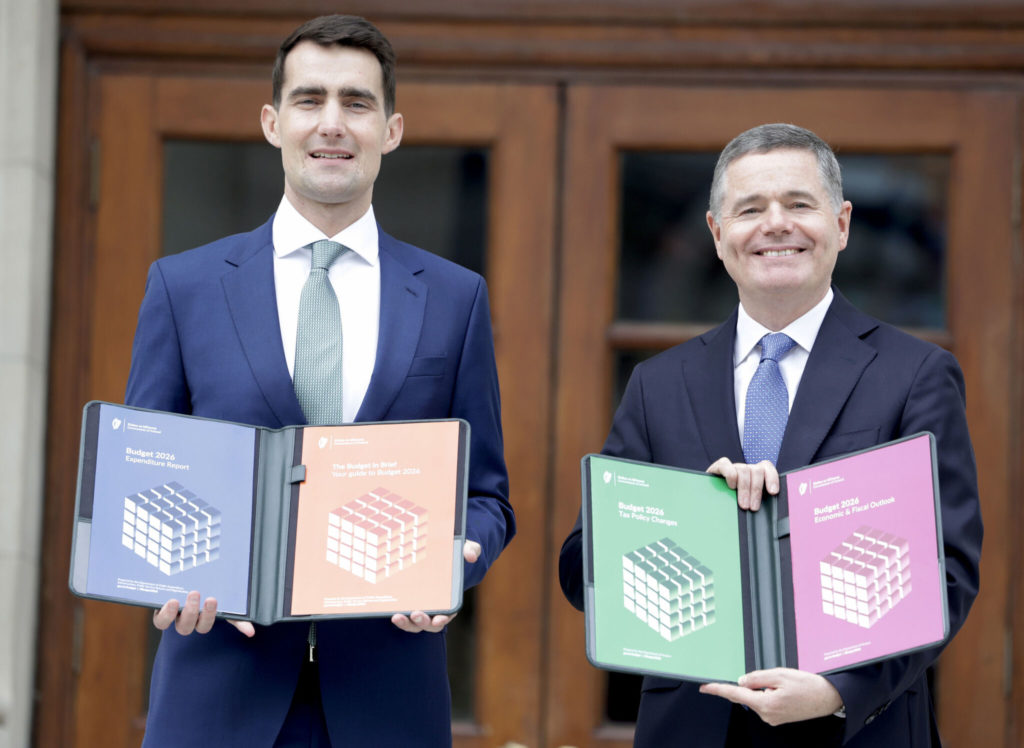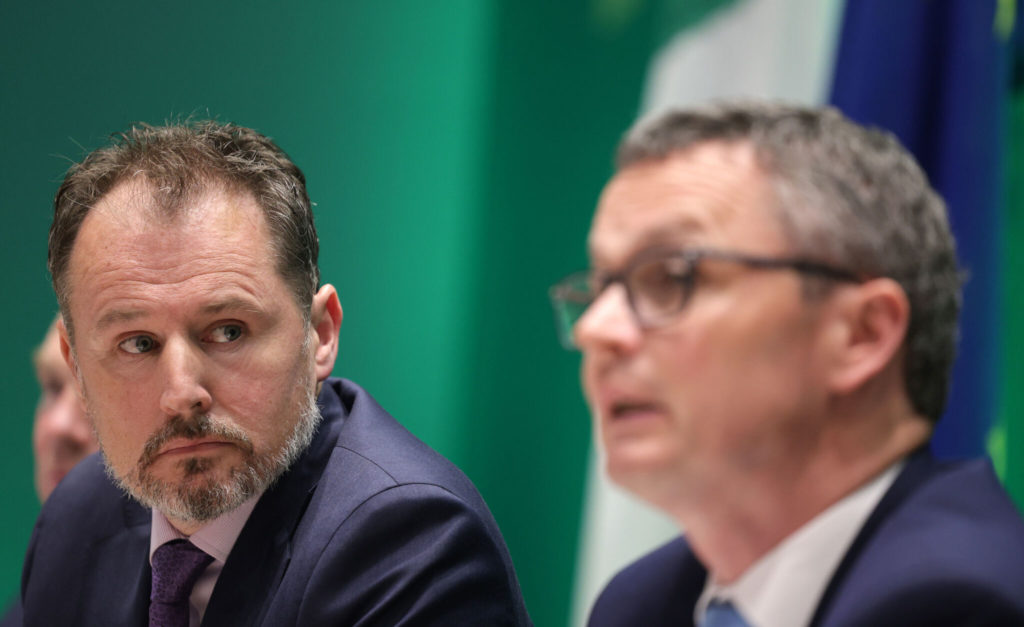THE Irish Government has unveiled its Budget 2026, with a package worth €9.4bn.
Ministers Paschal Donohoe and Jack Chambers described the budget as focused on “protecting jobs and growth” amid ongoing global economic uncertainty.
The total package includes €8.1bn in public spending and €1.3bn in taxation measures, marking a change from the one-off supports seen in recent years.
Among the most major allocations is a €27bn social protection package, the largest in a decade.
Key welfare measures include a €10 increase in weekly payments across the board, including pensions, jobseeker’s allowance and disability supports.
Long-term welfare recipients will receive a full double Christmas bonus.
Child support payments have also been raised, with under-12s receiving an additional €8 per week and over-12s getting €16 more.
The weekly fuel allowance will increase by €5, bringing it to €38, and eligibility has been extended to all families in receipt of the working family payment.
Carer’s allowance will benefit from an increased income disregard of €1,000 for single people and €2,000 for couples.
The domiciliary care allowance will rise to €380 per month, and the back-to-school clothing and footwear payment has been expanded to include two- and three-year-olds.
 Minister for Finance Paschal Donohoe and Minister for Public Expenditure Jack Chambers (RollingNews/Photo by Leah Farrell)
Minister for Finance Paschal Donohoe and Minister for Public Expenditure Jack Chambers (RollingNews/Photo by Leah Farrell)The Government has not introduced any personal income tax cuts.
The minimum wage will rise by 65 cents to €14.15 per hour from January 2026.
To accommodate this, the ceiling for the 2% Universal Social Charge band will be raised by €1,318 to €28,700.
VAT for food, catering, and hairdressing services will fall from 13.5% to 9% beginning July 2026, though the reduced rate does not apply to hotel accommodation.
The reduced 9% VAT on electricity and gas has been extended until December 2030.
Meanwhile, the research and development tax credit has been increased from 30% to 35%, with the first-year payment threshold raised to €87,500.
Entrepreneurs will see the lifetime gains limit under Capital Gains Tax relief increase from €1m to €1.5m.
The tax on savings and investment products has also been reduced from 41% to 38%.
Housing has remained a priority, with over €5bn allocated to capital investment in new housing for 2026.
The VAT on the sale of completed apartments has been cut from 13.5% to 9% and will remain in place until the end of 2030.
The €1,000 Rent Tax Credit, first introduced in 2023, will be extended until the end of 2028.
Mortgage Interest Tax Relief will also continue for another two years, albeit with a reduced benefit in the final year.
The Help-to-Buy scheme remains capped at €30k, while a new derelict property tax will replace the current derelict site levy and will be charged at a minimum rate of 7% of a site’s market value.
Additional funding of €200m has been allocated to small and medium-sized housebuilders, and €1.4 billion will go to Uisce Éireann to support water infrastructure and new housing developments.
Climate and energy measures also featured heavily in this year’s budget.
The carbon tax will rise to €71 per tonne of CO2, adding approximately 2.5 cents per litre to the cost of motor fuels from tomorrow.
For other fuels like home heating oil, coal, and gas, the new rate will apply from May 2026.
The revenue generated, estimated at €121m next year and then €157m annually, will be ring-fenced for social welfare supports and fuel poverty measures.
An additional €1.1bn has been allocated to the Department of Climate, Energy and the Environment.
This includes funding for retrofitting public buildings, €209m for the Climate Action Plan, and €3.5bn in investment for ESB and EirGrid to strengthen energy security and accelerate Ireland’s transition to renewables.
The €5,000 VRT relief for electric vehicles has been extended until the end of 2026.
 Minister for Tourism, Culture, Arts, Sport and Media of Ireland Patrick O'Dovonan with Minister of State at the Department of Culture, Communications and Sport Charlie McConalogue (RollingNews/Photo by Leah Farrell)
Minister for Tourism, Culture, Arts, Sport and Media of Ireland Patrick O'Dovonan with Minister of State at the Department of Culture, Communications and Sport Charlie McConalogue (RollingNews/Photo by Leah Farrell)The health sector will see a €27.4bn investment in 2026.
This includes 220 additional acute hospital beds, 280 more community beds, and 500 extra nursing home places.
Disability services receive a significant €500 million increase, bringing the total allocation to €3.7bn, to be used for residential care, day programmes, and assessments.
A new RSV immunisation programme for infants will be rolled out, and approximately 6,500 private assessments will be funded to reduce waiting lists for children with disabilities.
Mental health funding will go towards crisis response services, including specialist nurses in emergency departments.
In education, third-level registration fees have been cut by €500, reducing the annual cost to €2,500.
The income threshold for SUSI grant eligibility will increase to €120k, and the funding will provide for 1,717 new Special Needs Assistants and over 1,000 additional teaching posts.
The cost of a 20-pack of cigarettes will rise by 50 cents, likely pushing prices close to €19, while excise duties on other tobacco products will also increase proportionately.
From November 1, a new tax of 50 cents per millilitre of nicotine-containing vape liquid will come into effect.
This will increase the cost of disposable vapes and refillable vape liquids.
However, excise duties on alcohol remain unchanged.
The government has also confirmed that a new pool betting duty will be legislated in Budget 2027, giving expanded regulatory powers to the Gambling Regulatory Authority.
Childcare receives a boost as over 285,000 children are expected to benefit from the National Childcare Scheme next year, up by 35,000.
Meanwhile, other allocations include €3m for League of Ireland academies and €1.6m in funding for intercounty GAA and Irish rugby players.

